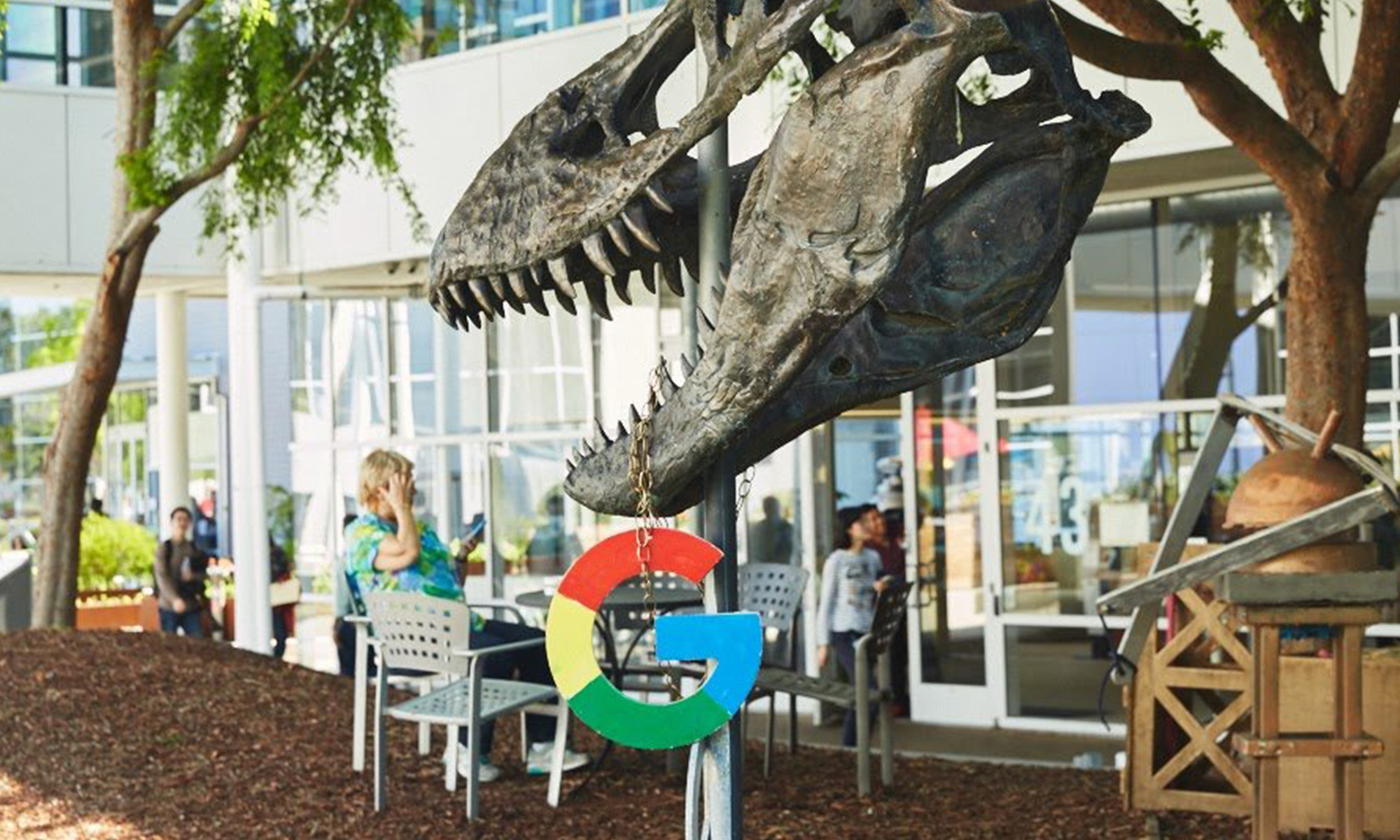
Image source: Alphabet.
The future of shopping will look very different if tech giants Alphabet (GOOG +1.11%) (GOOGL +1.04%) and Amazon.com (AMZN +1.98%) have their way.
Today, Amazon enjoys a commanding lead in driving the future of e-commerce, most notably through impressive improvements and big-picture thinking on the delivery front.
Its headlong investment into e-commerce has allowed the Seattle-based e-tail giant to create a commanding lead in this long-term growth market. However, online rivals like Alphabet acutely understand the need to challenge Amazon, as a recent move from the search giant again demonstrates.
Google Express adds groceries
According to reporting from Bloomberg, Alphabet's Google Express program recently expanded its delivery options to include fresh produce, meats, and dairy. Per the report, the increasingly sprawling search giant will open the program to select areas of San Francisco and Los Angeles.
The service costs either $2.99 per delivery for Google Express members or $4.99 for non-Express members. Like Amazon's well-known Prime subscription delivery service, Google Express charges customers a $95 baseline annual fee for free deliveries on orders of non-perishable goods from a host of retailers. Interestingly, Google's pricing structure for grocery delivery differs from that of Amazon Fresh, which requires a Prime membership and charges an additional $299 per year to add grocery delivery services.
Though its official small-scale launch took place in 2007, Amazon's grocery delivery efforts date back to long-shuttered dot-com-bubble upstart Webvan, which Amazon acquired out of bankruptcy. The fact that two of the most well-heeled, engineering-savvy Internet giants of our time remain so early on in their grocery delivery efforts speaks to the myriad issues (spoilage, low margins, etc.) that have always plagued companies seeking to ease the hassle of grocery shopping. However, with a number of newer, well-funded start-ups like Instacart again seeking to ease this pain point, it makes us wonder if new supply-chain innovations have finally made the time ripe for grocery delivery to go mainstream.
Playing the long game
Grocery delivery is still far from the norm. It's expensive. The selection can leave you wanting. However, as online giants like Amazon and Alphabet continue to experiment with the medium, it's important to note the broader narrative here, too. Taking a more long-term approach, large-scale e-commerce efforts like Amazon's and Alphabet's seek to address a more fundamental question: Why should we go to the store?

Image source: Amazon.
In an abstract sense, brick-and-mortar retail serves only a few core functions, namely product discovery and pick-up. To a certain extent, consumers will always want to be able to see items firsthand, which is important for retail investors to know. However, in terms of picking up the items you use in your everyday life -- those you already know you want or need -- there's a case to be made that in-person retail is an inefficient mode of distribution. It's this pain point that e-commerce giants like Amazon and Alphabet (and increasingly Wal-Mart) all address. And thanks to emerging technologies like drone delivery and self-driving cars, new cost-efficient channels to transport items from producer to consumer will become increasingly commonplace.
Though we think of e-commerce as a sizable segment of the economy, it accounted for a mere 7.4% of total U.S. retail sales in last year's fourth quarter, according to Department of Commerce data. The implication is that as better delivery methods emerge, we're increasingly likely to purchase items we already know we want through channels that make getting them as seamless as possible.
As such, Amazon's and Alphabet's gradual moves into areas like grocery delivery should be viewed with a very long time horizon in mind. These efforts are unlikely to produce any meaningful business results in the near term. However, like other seemingly far-fetched areas of both companies' businesses, they could eventually grow into sizable businesses in their own rights as the technology to support them evolves.








